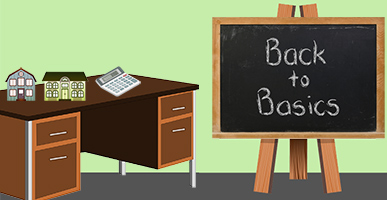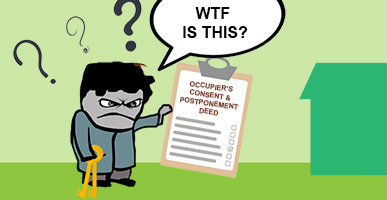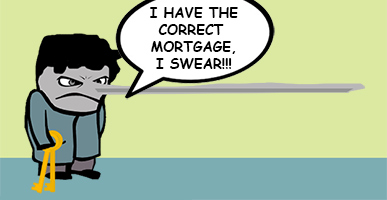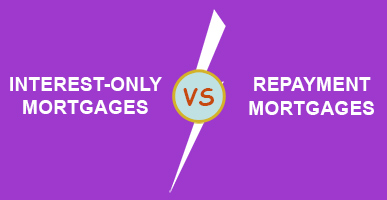
Helping landlords find the best possible BTL mortgage deals & useful information, saving £100’s each month!
Quick Links
I’ve said it before and I’ll say it again (until I’m blue(r) in the face), a mortgage can ultimately determine the success or failure of any property investment.
Mortgages are probably the single most important aspect of both buying and maintaining a property’s finances, yet so many landlords fail to understand how they truly work.
Poor mortgages choices sink ships.
FAQs
- What is a Buy-to-let mortgage?
- Buy-to-let mortgages are extremely competitive – where’s the best place to look?
- What’s the difference between a residential mortgage and a buy-to-let mortgage?
- Do I need a BTL mortgage to let my property?
- What would happen if I get caught renting my property on a residential mortgage?
- I want to let my current residential house, do I need to remortgage?
- How easy is it to get a BTL mortgage? Can I get one?
- Mortgage in principle Vs Mortgage offer
- Do I need to own a home before I can get a BTL mortgage?
What is a Buy-to-let mortgage?
A BTL mortgage is a loan to help buyers purchase a property specifically for letting.
They work exactly like regular residential mortgages: borrowers repay the loan amount with interest over an agreed period of time.
In practical terms, the only difference you may notice while shopping around for a BTL mortgage, is that they generally have a higher interest rate than residential mortgages.
That’s really it.
Buy-to-let mortgages are extremely competitive – where’s the best place to look?
Regardless of what type of mortgage you’re after, the market as a whole is extremely competitive.
Rates change every day and new products are released into the market regularly, so it’s important to shop around for the best deals right up until you sign on the dotted line.
It’s important to remember that even a puny 0.1% difference in rate can save/cost you thousands of pounds over the period of a mortgage (because you’re generally dealing with large sums of money with mortgages). So pay attention to every last fraction of a percent, regardless of how minuscule they may look as a numeric value.
I personally don’t recommend any one place to look for your BTL mortgage – you’ll miss out on good deals by limiting yourself. That’s why I can only encourage looking through as many places as possible, including the following places:
- Online BTL mortgage brokers (e.g. Habito is a free online BTL mortgage broker, that has received great ratings on TrustPilot from 8000+ borrowers)
- Local high-street banks and building societies
- Local independent brokers
- Mortgage comparison websites like MoneySuperMarket.com
What’s the difference between a residential mortgage and a buy-to-let mortgage?
I already briefly mentioned how BTL mortgages are generally more expensive, but there are also a few other differences which are worth mentioning:
1) Lenders see BTL mortgages as higher risk than residential mortgages, so that’s why you should expect buy-to-let mortgages to come with higher interest rates, product fees, not to mention a requirement for a bigger deposit. Before deciding on a loan, make sure that any high product fee being paid is worth it, as many cost so much that a higher interest rate would be a better bet.
2) Secondly (and most obviously), the policies are different. Buy-to-let mortgages have specific terms and conditions for properties that are being let.
3) Thirdly, when applying for a buy-to-let mortgage, some lenders may take into account the rent you will earn from the property as a basis of your loan. In fact, back in the day, most BTL lenders used rental income as the primary basis of the loan. However, since the recession back in 2007, fewer lenders take the rental income into consideration.
Do I need a BTL mortgage to let my property?
Yup, you do.
Although, a lot of landlords do illegitimately – often with the acknowledgement of their snake-oil broker – let their properties while on a residential mortgage, and without notifying their lender.
However, in my humble opinion, it’s not worth the risk as the potential penalties drastically outweigh the alternatives.
Specifically, having the incorrect mortgage would most likely invalidate your landlord insurance, which means that in the event of an emergency (e.g. property burns down), you would not be covered. Most insurers cover themselves by stating in the terms of the policy that the policyholder has the lenders permission to let.
Needless to say, insurers wouldn’t think twice about using that as a reason to invalidate any potential claims.
What would happen if I get caught renting my property on a residential mortgage?
It depends on the lender, but using a residential mortgage For a BTL probably constitutes as “mortgage fraud”
As a consequence, the lender could do the following:
- Revoke your loan and ask for immediate redemption of the mortgage
- Automatically change your rates to a higher amount that reflects their current Buy-to-let products
- Enforce financial penalties
Either way, nothing pleasant would come of it.
There’s usually more details on your lender’s rights in the event of breaking their terms and conditions.
I want to let my current residential house, do I need to remortgage?
Not necessarily.
It’s common for people to buy a second home, while letting out their first property. In this case, you should inform your lender that you wish to let your property.
In many instances, it will just be a straightforward case of updating the policy, which your existing lender can assist with.
Most lenders will charge an admin fee to do so, and maybe even put you onto a new rate, but you shouldn’t need to remortgage with a new lender (unless you want to).
Either way, it’s imperative to inform your current lender that you will be letting your property.
Some lenders may not allow you to let your property with any of their mortgage products. If that’s the case, you’ll have no choice but to remortgage. But you will also need to check to see if you’re tied into your current policy, and if so, check whether there are any penalties for an early exit (there usually is one).
It’s also important to remember that if you start renting out your home, you will also need to acquire landlord insurance– standard residential building insurance will not be valid.
Mortgage in principle Vs Mortgage offer
A mortgage in principle (also commonly known as a decision in principle or agreement in principle), is a conditional approval given by a lender to a prospective borrower, informing them of the maximum amount they are willing to lend for a mortgage. It’s calculated by assessing income, expenses and credit history.
It’s useful to get one so you can get an estimate of how much you can borrow.
A mortgage offer comes after a mortgage in principle. It’s a formal agreement from the lender for a specific mortgage loan. It comes after submitting a formal mortgage application, and the lender has completed a thorough assessment of your financial situation, including verifying your income, credit history, and property valuation.
A mortgage offer specifies the terms and conditions of the loan, such as the interest rate, repayment terms, and any special conditions. Once you accept the mortgage offer, it becomes a legally binding agreement between you and the lender.
What many people don’t realise is that if you get a mortgage offer today, the lender must honour the offer until the offer expires (which is usually after 6 months), even if interest rates climb during that time (yes, they will have grounds to cancel the offer if there are any material changes in your circumstances e.g. change in income). This can be super helpful for obvious reasons, but especially when you’re looking to buy a property during economic uncertainty, when interest rates are volatile and unpredictable in the near future. A lot of buyers get offers and then sit on it before signing the agreement, just in case rates change.
An agreement in principle is not binding and neither is an offer unless it’s accepted and signed for, so you can get them without any obligations and usually at no expense.
How easy is it to get a BTL mortgage? Can I get one?
Short (and useless) answer: it depends.
While I obviously won’t be able to give you a definitive answer, perhaps I can provide some light on what you can expect.
Essentially – and this should come as no surprise – it boils down affordability. Just like with any loan, the underwriters main priority when considering a BTL mortgage loan is ensuring that the applicant is in a favourable position to be able to pay back the loan.
Lenders take one or both the following into consideration when assessing affordability:
- Rental income: the income generated by the property is sufficient to support the monthly interest cost of the mortgage payments. In 2024, this is by far the most used metric by the vast majority of lenders, and ultimately the determining factor on how much can be borrowed.
- Personal income: some BTL mortgage lenders may take into account the personal income of the borrower, although this is not so common. Generally, this is only required if the applicant wants to borrow more than what the rental income can support.
Will you qualify for a BTL mortgage? Probably, but how much you’ll be able to borrow will vary from lender to lender, and it will be based on several variables, including the property, location, rental income, borrower’s credit rating, and potentially, the borrower’s personal income.
BTL Mortgage deposits – how much?
The mortgage market is fluid, with new products and rates being introduced frequently. However, through personal experience and having talked-shop with multiple mortgage brokers, I’d say the following is generally where we currently stand in 2024:
- Long gone are the 90% – 100% BTL mortgage products.
- For a good product with a competitive rate, you’ll need to stump up a 40% deposit (60% LTV).
- For a “grit your teeth and bear with it” rate, you’ll need a 25%-30% deposit.
- At the very least, you’ll likely require a 15% deposit (85% LTV) to obtain a BTL mortgage (this can vary by location e.g. in London, it could be more like 25% deposit / 75% LTV).
If you find a deal that requires a lower deposit than 15% (which is unheard of these days), rub your eyes to check it isn’t poor vision playing games with you. If it’s genuine, you’ll probably have to sell your soul, kidney and left leg, and bear an astronomical interest rate to get on board.
Do I need to own a home before I can get a BTL mortgage?
I read the following on the moneyexpert.com website and it baffled me:
Who can get a buy-to-let mortgage?
Firstly, you must already own a home yourself, either outright or with an existing mortgage.
I call BS!
Or at least, in my experience that has NEVER been the case. I’m not saying that owning your own home won’t improve your financial credibility, and I’m not even saying that there aren’t lenders out there that require it, but I have personally never come across a lender that has home ownership as a prerequisite for qualifying for a BTL mortgage.
So if you don’t own your own home (i.e. if you still live with your parents and want to invest in BTL), you can definitely still qualify for a BTL mortgage! I’m living proof of that.
Disclaimer: I'm just a landlord blogger; I'm 100% not qualified to give legal or financial advice. I'm a doofus. Any information I share is my unqualified opinion, and should never be construed as professional legal or financial advice. You should definitely get advice from a qualified professional for any legal or financial matters. For more information, please read my full disclaimer.


 Landlord Products / Services
Landlord Products / Services
















